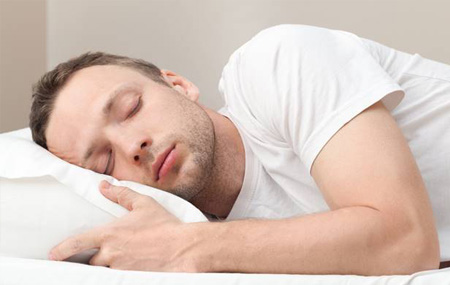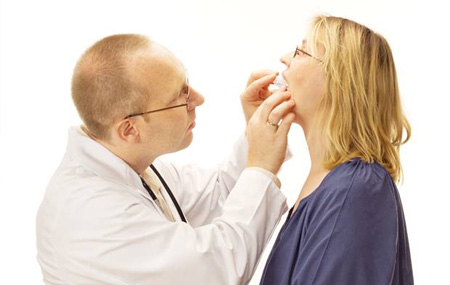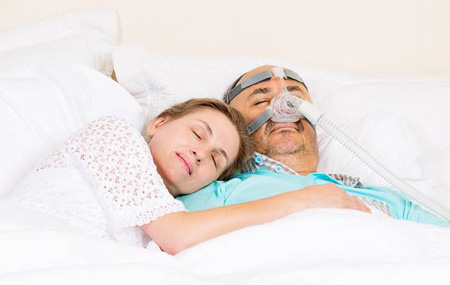If you’ve recently been diagnosed with sleep apnea or you’re experiencing warning signs of this common sleep disorder, you should call Pleasant Grove Family Dentistry right away to schedule a consultation appointment with our skilled dentists and caring dentistry team. We look forward to helping you with all of your sleep apnea diagnosis and treatment planning needs in our Texarkana dental office. Before you begin treatment, get the answers to some of our sleep apnea frequently asked questions below. Don’t forget, we’re here to help if you don’t see your questions here or you need more information.
 Sleep apnea is one of the most common sleep disorders. It occurs when patients stop breathing for ten or more seconds at a time during sleep. While most people experience a few apnea events during sleep, patients who suffer from sleep apnea may experience 100s or even 1000s of incidents of breathing cessation each night. When patients cease to breathe in and out, their body triggers a panic response to waken them and restart breathing. These repeated awakenings at night cause severe fatigue and elevated blood pressure as well as a variety of other concerns. There are two main forms of sleep apnea – central and obstructive. Central sleep apnea occurs when the brain fails to trigger the body to breathe in and out during sleep. Obstructive sleep apnea occurs when the airway is physically blocked during the night preventing normal breathing. Unfortunately, central sleep apnea requires advanced treatments, and many patients even require surgical intervention to make a full recovery. Luckily, this type of sleep apnea is rare. The more common form of sleep apnea, obstructive sleep apnea, can be effectively treated using a number of minimally invasive techniques.
Sleep apnea is one of the most common sleep disorders. It occurs when patients stop breathing for ten or more seconds at a time during sleep. While most people experience a few apnea events during sleep, patients who suffer from sleep apnea may experience 100s or even 1000s of incidents of breathing cessation each night. When patients cease to breathe in and out, their body triggers a panic response to waken them and restart breathing. These repeated awakenings at night cause severe fatigue and elevated blood pressure as well as a variety of other concerns. There are two main forms of sleep apnea – central and obstructive. Central sleep apnea occurs when the brain fails to trigger the body to breathe in and out during sleep. Obstructive sleep apnea occurs when the airway is physically blocked during the night preventing normal breathing. Unfortunately, central sleep apnea requires advanced treatments, and many patients even require surgical intervention to make a full recovery. Luckily, this type of sleep apnea is rare. The more common form of sleep apnea, obstructive sleep apnea, can be effectively treated using a number of minimally invasive techniques.
 The only way to know for sure that you have sleep apnea is to undergo a sleep study, but if you notice any of the following warning signs of this disorder, please contact our team or a trusted sleep doctor right away:
The only way to know for sure that you have sleep apnea is to undergo a sleep study, but if you notice any of the following warning signs of this disorder, please contact our team or a trusted sleep doctor right away:
 Dentists have years of advanced training in the way the oral and facial structures interact. This includes knowledge of the ideal airway function. When you visit a dentist to treat your sleep apnea, you can receive conservative, comfortable treatment that will allow you to sleep soundly through the night.
Dentists have years of advanced training in the way the oral and facial structures interact. This includes knowledge of the ideal airway function. When you visit a dentist to treat your sleep apnea, you can receive conservative, comfortable treatment that will allow you to sleep soundly through the night.
 There are two main treatments for sleep apnea. Continuous positive airway pressure (CPAP) and oral appliances. CPAP systems use forced air to keep the airway clear through the night, allowing patients to sleep soundly. Oral appliances offer the same treatment by shifting the jaw forward. For some patients, a combination of the two treatments may be necessary to achieve the desired results.
There are two main treatments for sleep apnea. Continuous positive airway pressure (CPAP) and oral appliances. CPAP systems use forced air to keep the airway clear through the night, allowing patients to sleep soundly. Oral appliances offer the same treatment by shifting the jaw forward. For some patients, a combination of the two treatments may be necessary to achieve the desired results.
Oral appliances work by repositioning the jaw forward. This gentle shift of the jaw places pressure on the throat muscles, keeping the airway clear and unobstructed through the night. For patients with obstructive sleep apnea and those who snore but do not necessarily suffer from sleep apnea, oral appliance therapy can offer effective treatment, allowing them to sleep and breathe deeply through the night.